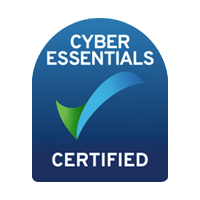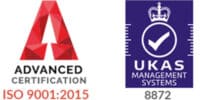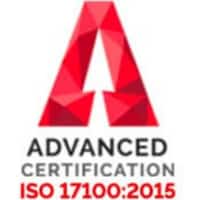FAQs
General
-
Please follow these links for:
• The languages we translate
• The services we offer
• The content and files we work withAt The Word Hub, we describe ourselves as a specialist, rather than generalist, language provider. For over 15 years, we have been translating primarily technical content and associated marketing, often originating from engineering-based manufacturers, into a wide variety of languages.
However, given enough time to contact a translator who is sufficiently skilled in the language pair and content type, we can translate anything.
-
Choosing a translation company can be a challenge. An internet search will instantly present you with thousands of companies.
By visiting our site, we hope you are at the end of your search. However, we are still keen to make sure that the company you find best suits your needs.
As with all services, you will be considering quality, budget and time.
Quality, in most instances, is the most important aspect of a translation. If you are making a business-critical decision, you need to be 100% sure of what you are reading. Similarly, inaccuracies or mistakes in marketing will be obvious to the target-language reader and could cost you financially or in reputation. At The Word Hub, we pride ourselves on quality, being certified to the ISO 17100:2015 Translation Standard, meaning our translators represent the best the industry can provide.
The budget needed for translation might surprise a first-time buyer and could be higher than you had been expecting. There are a number of aspects that contribute to the cost of translation. In translation, it is usually (but not always) true that you get what you pay for. If you find a substantially cheaper quote, you are likely paying for a service that is deficient in some way. This could be the quality of the translators employed, the attention to detail in the setup of the project, the care and attention spent during any revision or the level of service provided by a project manager. The Word Hub is focused upon value, making the most of the budgets we are provided with, aiming to deliver quality in all aspects of our service to you.
The time required for translation is perhaps the most variable factor, being dependant upon the content type, service level, language pair, intended audience plus several other parameters. Obviously, elements such as the volume of text or highly creative texts will require more time or additional quality checks. In contrast a short text that only needs a gist translation could be translated almost immediately using MT. Time is a crucial part of the translation equation, enabling better quality to be achieved. Sacrificing time can often result in compromised quality, but in some time-limited scenarios, that is acceptable.
For the next step of your search, we encourage you to get a quote from us. But if you feel that we are not the translation provider for your needs, we would recommend taking a look at the UK’s Association of Translation Companies for other professional organisations before continuing with the pot luck of Google.
-
If you are unsure what language you need, we recommend that you first ask your contacts in your target country.
If you are unable to do this, we can give you an idea of the language you are likely to need for a specific country.
Take a look at some of the languages we translate.
-
We have created an animated story that describes a typical workflow here.
The translation is then proofed, corrected if necessary, and finally returned to you.
-
We source our linguists (translators) in line with the requirements out in the ISO 17100:2015 Translation Standard.
All of our linguists have a minimum of 5 years’ experience in the translation industry and either a degree in translation or in a related field of expertise. In reality, the majority of our suppliers have decades of experience.
Our linguists are fully vetted. We require that they provide us with references and specific evidence of their expertise, and that they translate a number of test pieces.
In addition, all of our linguists must sign an NDA when they start their collaboration with us. Therefore, you can have peace of mind that your content is in the best hands.
Services
-
Free online tools can provide an instant gist of the content you have at hand. However, they do not match the output of human linguists in terms of quality.
Such tools offer a quick and easy solution for reading a document internally for your own information, but we strongly advise against basing business decisions upon free translations. Its quality cannot be assured, and you will have no recourse.
It also worth noting that, in general, once you have uploaded a text to a free translation engine, you have surrendered ownership of the IP.
-
Yes, we can. If you are unsure of the language the document you have for translation is in, please send it to us and we will quickly identify it and make suggestions for your next steps.
Similarly, if you require guidance on the preferred target language for any given territory, we are here to advise and assist.
-
Yes! Our revisers will take a look at the translation and make amendments using ‘tracked changes’, enabling you to see where changes have been made.
If required, we can also include the reviser’s comment for each amendment.
Check out our page dedicated to revising translations.
Please note that we only undertake third-party revisions on the understanding that our quality guarantee does not apply. Our guarantee only applies to projects 100% processed by The Word Hub Limited.
We will make every effort to correct and improve the translation, but we cannot guarantee that the revised version will be of the quality expected by the client or end-client. We bear no responsibility for any negative feedback, unless it directly pertains to a specific amendment made by us.
-
The benefits of paying for revision of the output of a single linguist are best considered in respect of the relevant importance of the content at hand. High profile translations that are going to be business critical will benefit from the additional time spent by a second independent translator. In the same way that the source text can be finessed and improved upon, so can translation, given the time and input of a fresh pair of eyes. We suggest revision for content such as marketing, where smaller texts are likely to have large exposure in multiple channels. Similarly, challenging texts such as decals or user interface content, where safety is paramount, benefit from additional work to ensure accuracy and clarity. The Word Hub is certified for the 17100:2015 Translation Standard which stipulates second independent revision for translations to be fully compliant.
My Quote
-
When you request a quote from The Word Hub, one of our project managers will personally look through your file(s), ask questions to make sure you get exactly the service you need, and process the file(s) with the aim of achieving further savings for you.
We don’t believe instant quote calculators are accurate.
Uploading content to an automated calculator means that the content is not assessed by specialism, which would normally inform the choice of linguist, the time required and the necessary budget. Similarly, there is no assessment of the content by a CAT tool (which can generate savings), nor any consideration of the formatting that might be required.
An instant quote calculator is reductive, focusing solely on the price. Price is of course important when making any purchasing decision, but we all know that it is a poor indicator of quality and service.
-
Typically, we calculate costs by analysing the volume of words and applying a charge per word.
Discounts are applied to this figure through the use of translation software (CAT tools) that locate repetitions within the content. To understand how we create discounts, take a look at how we translate.
If desktop publishing, or formatting, of the target document is required, we typically apply a cost per page.
Please contact us to ask for specific details of current prices and discounts.
-
A minimum of three professionals will be involved in any translation project we complete. This would include a skilled project manager, an experienced translator and a professional formatter.
For a translation to conform to the ISO 17100:2015 Translation Standard, an additional professional linguist will be required to revise the translation.
Cheaper translation often does not follow this workflow and is likely to be of a significantly poorer quality. The only time this is acceptable is when bespoke Machine Translation, followed by professional human post-editing, is used to create a crude translation that is used internally to obtain a general understanding of a document. Otherwise, you should ensure your text is seen by these various professionals to avoid misleading and embarrassing translations.
High quality translations will provide you with a much better return on your investment. Furthermore, the more you translate with us, the more likely we will be able to offer saving thanks to the use of translation memory.
Finally, it is also possible to write in a way that saves you money during translation and makes technical texts more effective – check out our blog series on Technical Authoring with Translation in Mind (TATM)!
-
The cost of translation into a particular language reflects the available supply of linguists.
There are often fewer translators for lesser-spoken languages, meaning high demand can push up their prices.
Many linguists are also based in their native countries, meaning their prices can reflect their relative cost of living.
-
It can.
Simple texts that do not require highly specialised knowledge of the content’s topic are normally cheaper.
Conversely, texts that have complicated topics, require knowledge of how something works, or include specialist vocabulary, will be more expensive.
-
Time and skill are required to correctly edit target documents to make them presentable to a desired audience.
There are many factors that affect the amount of effort required to format a target document, such as the language pair, the software it was created in, the complexity of the document, how graphically rich it is, the target audience, and your requirements for publication.
We are happy to remove this cost for clients who decide to format their own content with the proviso that the final documents no longer carry our indemnity.
-
For matches found in a translation memory, a human reviser needs to approve them to ensure that they are correct in their context.
This aspect is key because a match might need to change depending on the text that surrounds it. This could be true for each repetition across your content.
An English speaker might not always be aware of how surrounding text can affect different parts of a translation for particular languages. This is because English typically has fewer conjugations, genders, cases and declensions than many other languages. These features of grammar govern how each word in a sentence is used and can change.
For example, a sentence beginning with ‘it’ might repeat itself but refers to two different objects. If those objects are of different genders in a language such as French, then one of the matches might need its articles, pronouns, adjectives, prepositions and even the verb forms changing.
It is for this reason that checking matches is essential.
-
The timeline of a translation project includes the linguist’s translation time, preparation of the document before and after translation, and the time for any other services such as revision or formatting.
To calculate the linguist’s translation time, we suggest that you divide your total word count by 1,500 and round the result up to a whole number. The rounded number represents the number of days typically required for a single linguist to translate your content. This estimate is based on a professional translator’s average daily output of 1,500 words.
Of course, each project is different and the timeline can vary according to a number of factors, including the content type, the audience, the level of revision requested, etc.
Time can further be reduced if we hold an existing translation memory for you (because you have used our services before for a similar project and the same language(s)). The presence of a translation memory can speed things up thanks to matches and repetitions.
When you go ahead with a project, we will keep you up to date with the translation schedule, so you know when it will be back and ready for you to use.
Translation Tech
-
To understand translation memory, watch our short animation.
Briefly explained, translation memory is a bilingual database of previous translations, broken up into meaningful segments. These segments are accessible to the linguist during translation, enabling them to work consistently and at greater speed.
Thanks to translation memory, we are often able to offer returning clients reduced translation costs for texts of a similar nature.
-
CAT stands for “computer-assisted translation” and is used to describe a variety of software that support linguists during translation. CAT tools enable the linguist to take advantage of previous translations, stored in translation memories, and other supporting elements such as termbases. This means that translations are consistent and can be completed at greater speed.
CAT tools are different to machine translation.
-
Machine translation (MT) is the only translation service at The Word Hub that incorporates computer-generated translation. Nevertheless, it still often includes various levels of human input.
An example of pure MT is what you might get from using free tools such as Google Translate. MT has evolved through various models, particularly in the last two decades, and the current generation is described as neural MT.
MT has some advantages with regard to time and budget. But what is gained here is lost in quality compared to human output. To account for this, MT can be accompanied by human post-editing. Post-editing will improve the quality, but will require more time and budget.
Check out our MT and Post-Editing services.
 Get a Quote
Get a Quote



